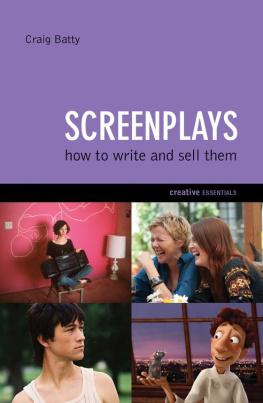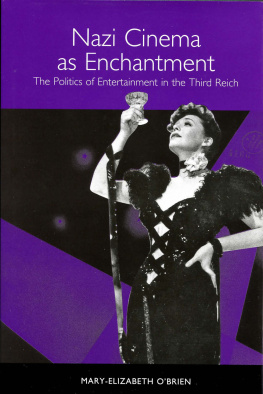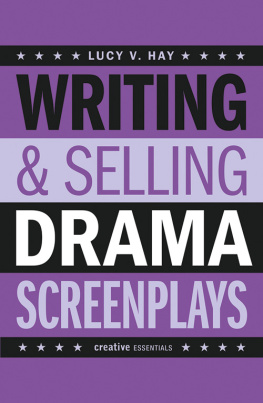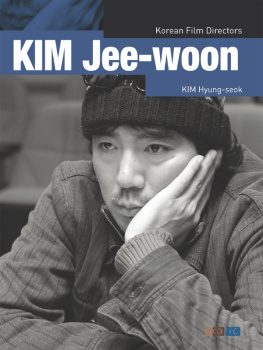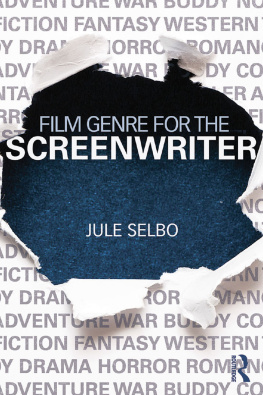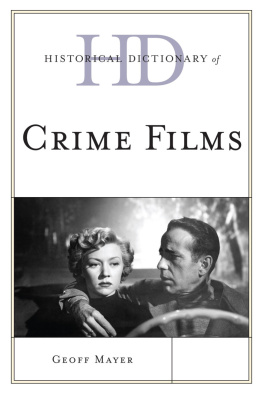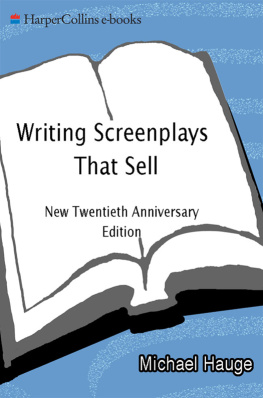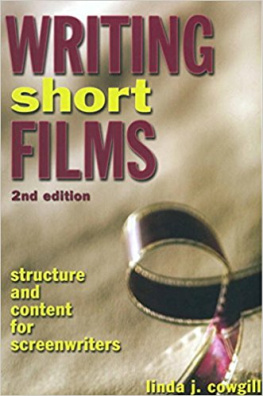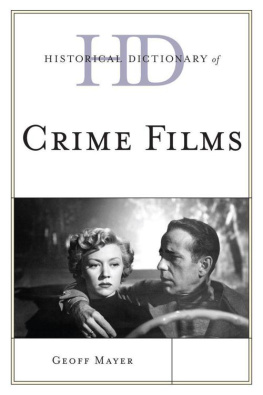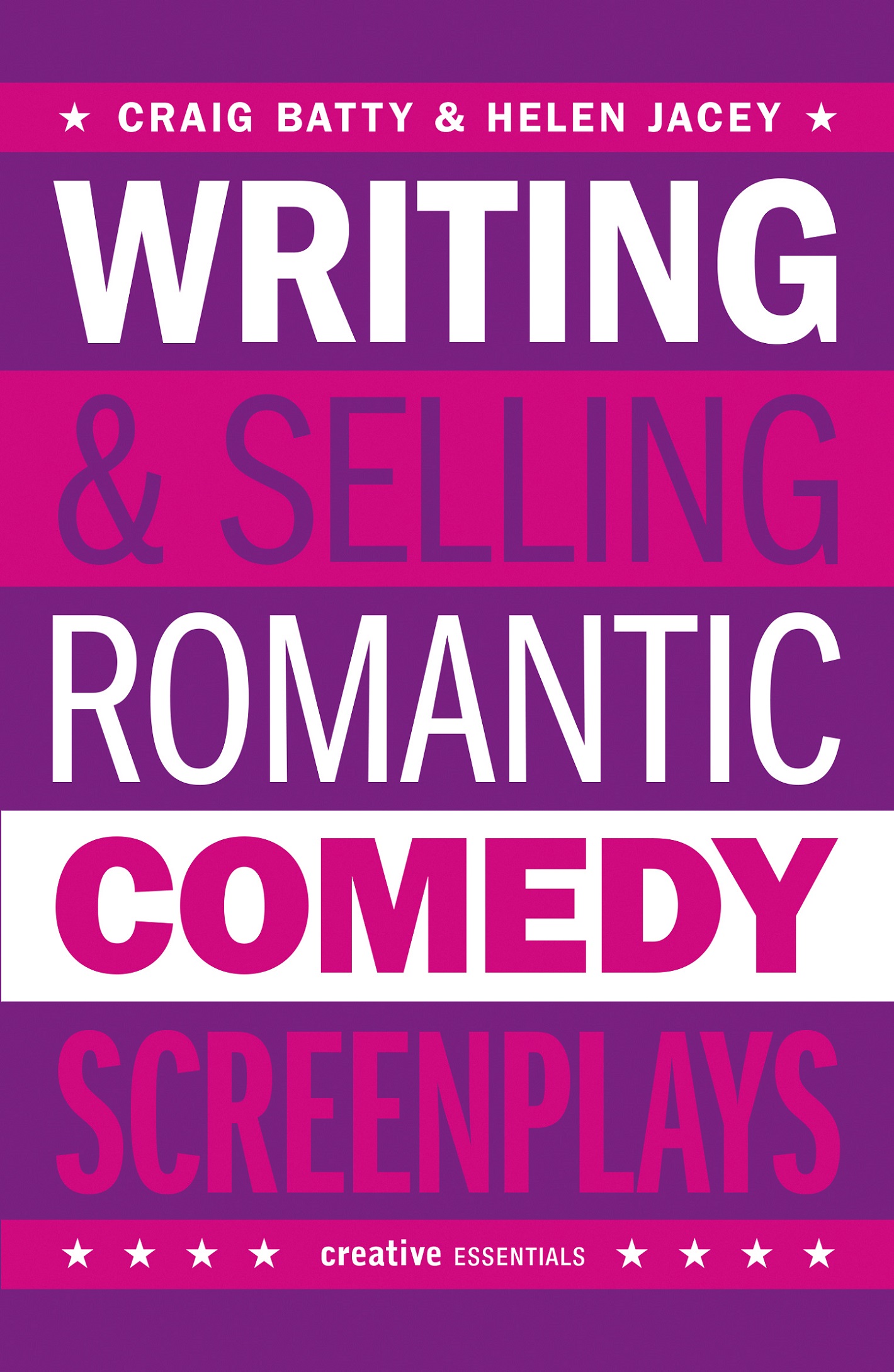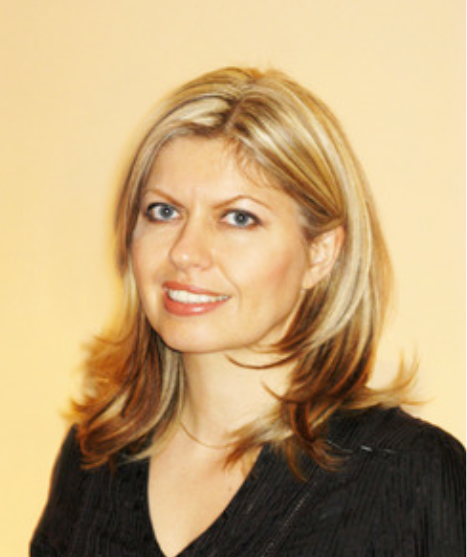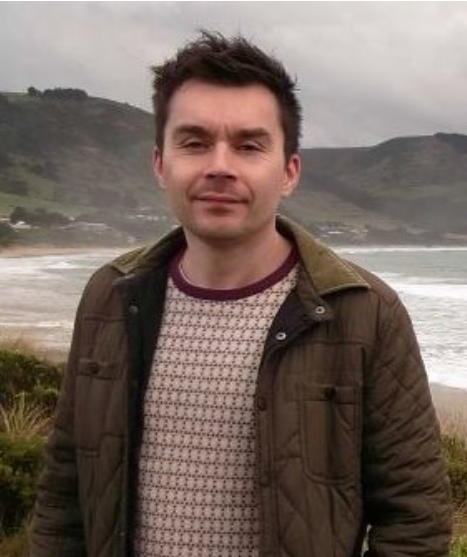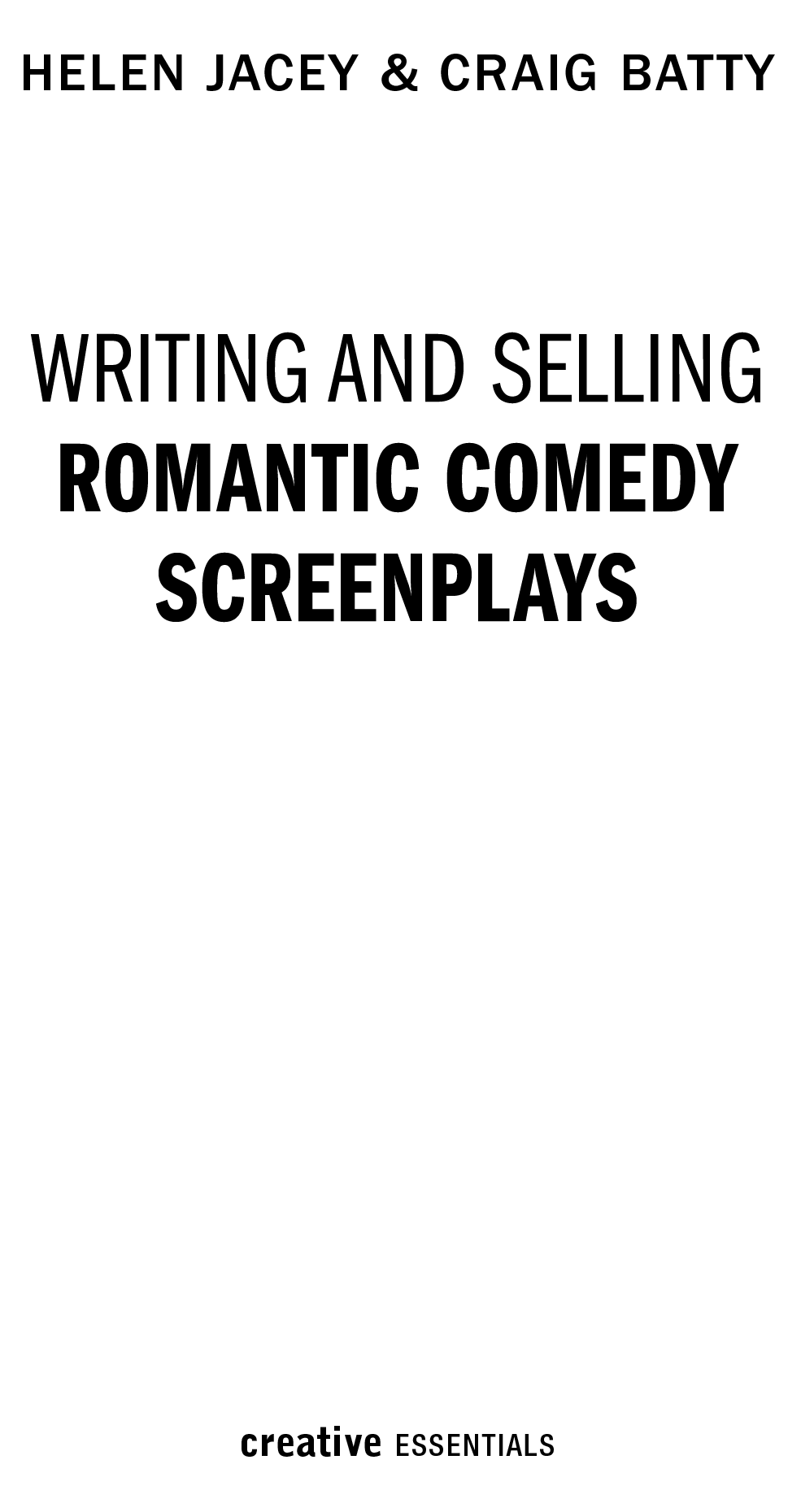WRITING AND SELLING ROMANTIC COMEDY SCREENPLAYS
What happens when happy ever after isnt quite so simple? T odays attitudes to love and romance are as varied and diverse as individuals, and audiences want and need more sophisticated, authentic films that show how we live and love now. So what does this mean for the screenwriter developing a romcom? And how do they write heart-warming stories for a genre that is constantly evolving, from bromcom to zomcom to famcom?
Writing and Selling Romantic Comedy Screenplays offers a fresh approach to creating narratives for this ever-changing genre. Moving away from rigid and limited definitions that have evolved out of mainstream genre films, the book embraces a working definition that crosses cultural and national boundaries to give screenwriters around the world a truly international perspective on writing comedic love stories.
It will be the first screenwriting guide to reflect the diversity of approaches in todays films that deal with the human need for emotional and physical intimacy using humour the contemporary romantic comedy.
Features of the book include:
Illuminating, challenging and provocative about the state of the rom-com genre. Why do some films feel so dated, while others are perennially relevant?
Explores and defines all subgenres of romcom, such as zomcom, bromedy, soromcom and famcom.
Uniquely draws on creativity, screenwriting genre theory and film industry practice.
Stimulating creative exercises at the end of every chapter, and hot tips throughout.
Adaptable concepts that can be applied to both feature films and short films.
Encourages screenwriters to define their own values about love to ensure their voice and message is original and commercial.
Case studies and analyses of produced screenplays, including Dostana , Due Date , I Give it a Year , I love You , Man , Midnight in Paris , Ruby Sparks , Tamara Drewe , Ted and Warm Bodies .
Interviews with writers, directors and producers.
Genuine international perspective.
Indispensible guide for both the student and the professional writer or filmmaker.
Helen Jacey
Helen Jacey is a screenwriter, author, and story consultant who has developed numerous projects across film, TV, radio, advertising and fiction for the UK and international industry. Helens first book The Woman in the Story (2010) has been described as the seminal screenwriting guide to creating stronger female characters and she has trained writers and filmmakers across the globe. Helen also lectures on scriptwriting at Bournemouth University, UK.
Dr Craig Batty
Dr Craig Batty is Principal Lecturer in Screenwriting at Bournemouth University, UK. He is a writer and script consultant, and has worked on many short film, feature film and television projects. He currently script edits and sometimes co-writes all drama projects for Mango Rapid Productions.
ACKNOWLEDGEMENTS
The following people and places were invaluable in helping this book happen. Firstly, thanks to our publisher, Kamera Books, and in particular Hannah Patterson and Ion Mills for sharing our vision and for their patience! And thanks to Anne Hudson, for doing a great job with editing.
Were very grateful to Bournemouth Universitys Fusion Fund for supporting travel and research to Australia and the US, which was also invaluable for reducing the number of late-night Skype sessions during the evolution of this book. And to RMIT University for its generous acknowledgement of the time needed to research and write.
Special thanks go to Linda Seger, who introduced us in the first place at Carluccios restaurant in London a great place for a chumcom meet cute!
Thanks also to Hal Ackerman, Ben Cookson, Julian Farino, Gene Wayne Hart, Andy Horton, Suya Lee, Jeff Reno and Stayci Taylor for sharing their time, insights and thoughts about all things romcom.
Huge thanks to Jule Selbo for agreeing to write the Foreword we couldnt have a better screenwriting genre expert on hand!
We d also like to thank our families, friends, students, colleagues and collaborators for helping to make this book happen. Together, theyve offered us moral support and guidance, inspiration and reflection, and knowledge that has influenced and transformed our thinking about romantic comedy screenplays and how to talk to others about them.
FOREWORD
Dr Jule Selbo, award-winning screenwriter and Head of the MFA in Screenwriting at California State University, Fullerton
I began teaching film genre for screenwriters seminars a few years ago, and when I get to the romance and romantic comedy genres, I never tire of asking the writers in the class Who believes in true love? Hands go up and, surprisingly, more male hands than female hands. We talk about why the idea of true love is a staple in most cultures and societies, and how this idea of a soulmate is so prevalent in reams of literature and films. We discuss possible reasons for why the romance genre is a dominant or supporting story element in many screenplays top action/thriller/crime films such as the Bourne cycle and The Departed , westerns such as Tombstone , horror films such as Let the Right One In , fantasy/war/sci-fi adventure films such as Avatar , and countless more films in various genres.
What makes Die Hard , often considered one of the top action/thrillers, work so well? Because John McClanes reason to enter the fray is to save his wife, so he has the opportunity to rekindle their relationship. He loves her. And that makes us love him. One of the most important elements about the James Bond re-boot is that audiences watching Casino Royale become emotionally attached to a man who almost gave up the spy game for love . His soulmate, Vesper Lynd, dies tragically in the narrative, and now Bond is a haunted, hurting man albeit still looking great in a tuxedo. We know hes known and given profound, gut-wrenching love. And we love him for that. Audiences tend to love lovers. Because we know how much love can hurt, how love can lift a person, how love can cause crises of self-esteem, how it can make or break ones day basically how it affects us and affects a great majority of (all?) people all around the world.
Film theorist Torben Grodal suggests that humans are connected to the idea of love because of a deep-seated human desire for intimate connection, whether its for survival, for procreation, for status or for self-esteem. Grodal also refers to Nico Frijdas work, The Emotions , positing that true love often comes with a negotiation between partners whats acceptable, whats not, how far ones willing to go and how much ones willing to risk.
Anthropologist and human behaviour researcher Helen Fisher, in her TED talk, The Brain in Love , points to the activity in the brain in the ventral tegmental area. Here cells create dopamine, a natural stimulant, and share it with other regions of the brain creating a sort of reward system. She says: Its below your emotions. Its associated with wanting, with motivation, with focus on and craving. In fact, the same brain region where activity becomes active when you feel the rush of cocaine. Add a comedy spin to these analysts observations and factoids and the plots for thousands of romantic comedies come to mind.


